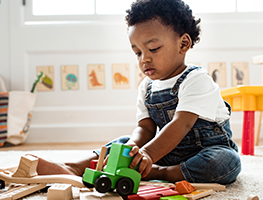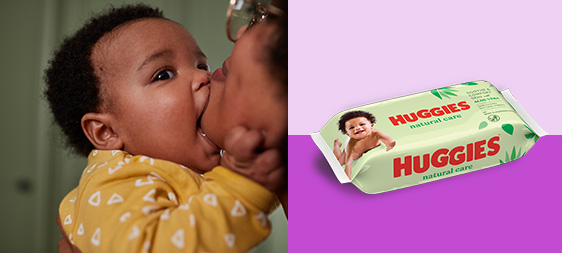Toddlers come in all shapes and sizes, with differing personalities to boot. One characteristic that can be a real challenge for parents to cope with is shyness. Psychologists agree this characteristic is one that is a result of temperament and often not related to parenting itself. It appears as if nature has prewired some children to be shy, whilst many children outgrow shyness a small percentage don’t.
Up until the age of 2, babies and toddlers do not tend to interact with each other very much anyway. They will sit and play alongside each other, but are unlikely to engage in meaningful interaction. This ‘parallel play’, as it is known, is the stepping-stone to actual play later on. It is from around the age of 2 onwards that your little one will start to develop the skill of developing friendship. At 3, they will often actively seek out children they specifically wish to play with. The difference here is that the shy child usually will not do this.
It is important to note that there are developmental stages of shyness that are perfectly normal in all toddlers. There is a clear distinction between developmental and on-going shyness. Some children will go through stages lasting a few weeks where they are shy or clingy. But for a small group of toddlers, shyness will be an on-going issue, which they will not simply outgrow. As a consequence, parents need to be aware that those children, who remain consistently shy, will need careful management and gentle strategies implemented in order to help them manage this.
The typical characteristics of a shy child are that they refuse to venture from your side when on outings, and will be clingy and shy in front of strangers, as well as people they know. Where most children outgrow developmental stages of shyness from the age of about 3 years, the shy child will not.
This often means that they will refuse to participate in group activities and are reluctant to be centre of attention. Events like their birthday can prove very stressful for them.
It can be very upsetting and distressing for parents to see their child refusing to interact with their peers or grown-ups, and the key thing is to be understanding.
Make sure you do not express these frustrations in front of your toddler, either to them, or to other adults.
If you have any concerns about your child and their well-being and think it is more than shyness, it is important to address these concerns with your family GP. They will be able to advise you on appropriate actions, as well as any necessary referrals and support groups.
So how can you work with your little one to help them manage their shyness?
A good place to start is by ensuring you yourself are modelling positive behaviour. Kids need to see you interacting confidently with others. If, as a parent, you have a tendency towards shyness it is important to work on this. Children are like sponges and will soak up the way you behave as well.
Avoid using labels and calling them shy. This will simply reinforce perceptions about themselves that can have negative consequences.
Remember that their fears are real. They may not be able to articulate what it is that frightens them, but it is important that you remain sensitive to it.
Start small. Organise one-on-one play dates with other children.
Before going to social events talk to your child about it. Explain that it will be busy and crowded, and talk about the ways they will feel safe. Practice saying “hello” and “how are you?” with them before going to the event. Role-playing potential scenarios will often help them feel more secure.
A useful way to cope with busy social events is to arrive as early as possible. This allows them to absorb their surroundings and meet other guests in a less noisy, stressful environment.
Always leave yourself extra time for things. It will often take a shy toddler lots longer to settle into places or new activities, and if you have to leave them, make sure you have allocated extra time for yourself so you can stay and help them settle in.
Persist in attending social events with your child; with time they will grow in confidence.
The most important thing with a shy toddler is to help them develop the skills they demonstrate. This will help them with their sense of self-worth and confidence as well. Whether this is singing, dancing or painting, it will allow them to focus on what they are good at. Shyness is a personality trait that requires gentle and consistent management in order to help your little one maximise their potential.



























